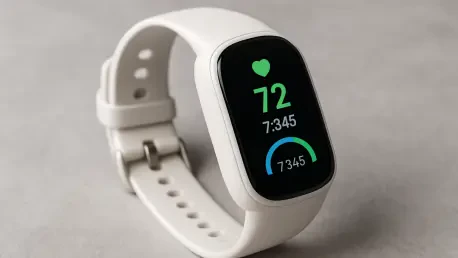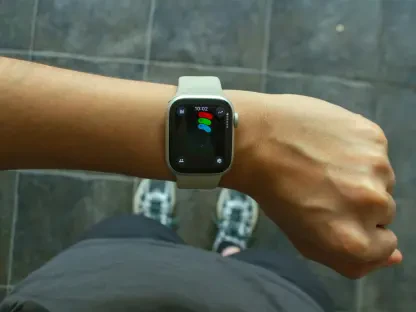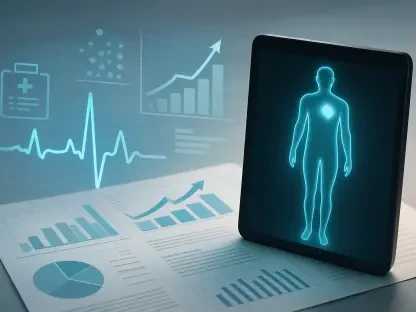The concept of wearable health devices becoming commonplace in the United States has garnered considerable attention, largely driven by Health and Human Services Secretary Robert F. Kennedy Jr.’s ambitious vision. During a recent House Committee on Energy and Commerce’s Subcommittee hearing, Kennedy introduced an initiative to integrate wearable technology into everyday American life within four years. This vision, framed as a crusade to Make America Healthy Again, hinges on promoting smartwatches, fitness trackers, and smart rings to encourage individual health management through personal accountability and data insights. However, despite its potential, the initiative has not been without controversy, particularly concerning issues of cost, legality, ethics, and execution.
Evaluating Implementation Feasibility
Economic and Distribution Challenges
One of the principal concerns surrounding this initiative is its lack of financial clarity, as well as how these devices will be distributed among citizens. The cost of wearables like continuous glucose monitors can be prohibitively high, reaching up to $300 monthly, which raises valid questions regarding affordability for the average American. While Kennedy alludes to potential financial schemes, such as insurance coverage or subsidies, the specifics remain opaque. This lack of detail has prompted a spectrum of questions about the potential financial burden on consumers and the feasibility of equitable distribution across various socioeconomic groups. Clarity on these issues would serve to alleviate worries over whether such a program might accidentally widen existing disparities in healthcare accessibility.
Legal, Ethical, and Privacy Concerns
Compounding the financial uncertainty, the agenda faces scrutiny over its ethical and legal implications. The potential necessity of mandating these devices elicits significant debate concerning personal freedoms and autonomy over one’s health choices. While the promise of enhanced health outcomes is appealing, a mandatory approach could generate public opposition. Furthermore, the legal territory regarding health data privacy raises additional red flags. Current legal frameworks leave wearable-generated data largely outside the protection of robust privacy laws like HIPAA. Instead, privacy depends on company terms, which can fall short of safeguarding individual rights. Concerns escalate about how data might be utilized, shared, or sold, especially if companies undergo structural changes.
Addressing User Engagement and Security
User Motivation and Proficiency
A pivotal aspect of realizing Kennedy’s vision is ensuring that Americans not only adopt these devices but actively engage with the data they produce. Enthusiasm for self-monitoring is a requisite for the successful integration of wearables into daily life. However, this assumes technological proficiency and motivation from all demographics, an assumption that might not align with reality. Individuals lacking in these areas may require robust support systems or face limited benefits from the technology. This introduces the necessity for educational initiatives and a network of support services that can equip users with the necessary skills to interpret and act on health data insights effectively.
Security and Data Breach Risks
The heightened generation of health-related data inevitably increases the risk of security vulnerabilities, making robust defenses essential. With healthcare data’s value rising, the lure for cybercriminals is significant. Data breaches involving health information could have severe ramifications, not only compromising health privacy but also threatening other facets of personal security, such as financial security. As wearables become integrated into the healthcare system, there is an urgent call for strong cybersecurity measures, comprehensive protocols, and constant vigilance to prevent unauthorized access and potential misappropriation of sensitive data.
Ethical and Technological Implications
Ethical Health Data Usage
The potential for data exploitation without explicit consent poses an ethical quandary. As companies gather extensive health data, the temptation to use it for marketing or research purposes grows, creating a precarious balance between innovation and privacy rights. Oversight mechanisms become crucial to ensure companies adhere to ethical practices, respecting consumer rights and maintaining transparency. Without stringent guidelines, individuals remain vulnerable to their data being used in ways they did not explicitly endorse, highlighting the necessity for policy interventions that safeguard against such exploitation.
Compatibility and Technological Interoperability
The idea of integrating wearable health devices into everyday life in the United States is gaining significant momentum, largely inspired by Health and Human Services Secretary Robert F. Kennedy Jr.’s forward-thinking vision. Recently, at a House Committee on Energy and Commerce’s Subcommittee hearing, Kennedy proposed an initiative to weave wearable technology into American culture within four years. His plan, known as the initiative to Make America Healthy Again, emphasizes smartwatches, fitness trackers, and smart rings as tools to promote personal health accountability and provide valuable health data insights. Despite its innovative approach, this initiative has sparked debate over several concerns, including financial feasibility, legal implications, ethical considerations, and practical execution challenges. Critics question whether the benefits of enhanced personal health management justify potential drawbacks such as privacy intrusion and data security, which remain points of contention in recent discussions.









